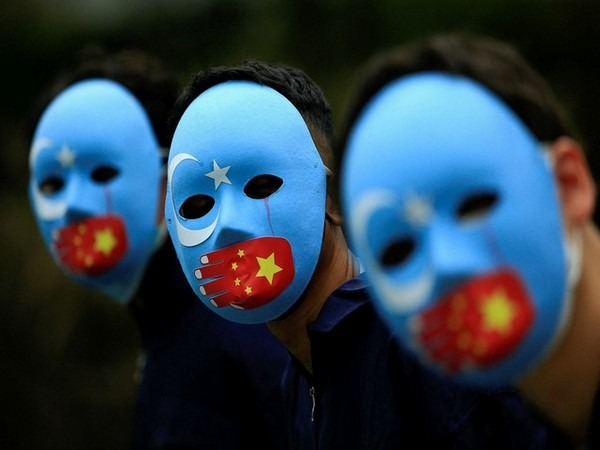Singtel earnings fall amid COVID-19 and additional Airtel charge
Aug 24, 2020

By Lee Kah Whye
Singapore, August 24 : Last week, Southeast Asia's largest telco, Singtel, reported lower revenues and earnings for its first fiscal quarter of 2020.
In its voluntary business performance update on August 17, the company revealed that earnings before interest, taxes, depreciation, and amortisation (EBITDA) was down 24.2 per cent to SGD 897 million (USD 654 million) from SGD 1.18 billion (USD 860 million) a year ago.
It also took an exceptional charge of SGD 911 million (USD 664 million) as its share of the additional provision of license fee and spectrum usage fee imposed by the Department of Telecommunication of India due to its shareholding in Bharti Telecom Limited.
Operating revenue for the quarter also declined 14 per cent from a year ago to SGD 3.54 billion (USD 2.58 billion).
Starting this year, companies listed on the Singapore Stock Exchange only need to report their half and full-year financial statements. Quarterly reporting will only be required from listed entities that are associated with higher risks, or if there are audit or regulatory concerns about them. Due to this new rule, Singtel is not obligated to disclose any of its financial figures.
In its latest financial quarter that ended in June, Singtel recorded an exceptional loss of SGD 911 million (USD 664 million) post tax for its share of the additional provision of license fee and spectrum usage and related interest as a result of the Supreme Court of India's decision on the Adjusted Gross Revenue (AGR) matter on July 20.
This also took into account an exceptional tax charge from the reassessment of the carrying amounts of deferred tax balances including minimum alternate tax credits as well as adjustments from the resolution of certain tax disputes.
This was offset in part by a gain of SGD 550 million from the dilution of Singtel's effective shareholding in Airtel by 1.4 percentage points following Bharti Telecom Limited sale of 2.75 percent stake in Airtel in May.
Singtel had already taken a pre-tax charge of SGD 2.57 billion in the previous financial year which ended March 2020 as its share of Airtel's net exception losses which was mainly attributed to the AGR dispute.
For Q1, Singtel cited the softening economic and market conditions, aggravated by COVID-19 and ongoing price competition in its major markets, for its weaker performance. It also said that revenues fell due to lower equipment sales, roaming and prepaid mobile revenues, delays or deferments of some ICT projects and reduced customer spending.
Post-tax contributions from the regional associates rose 5.6 per cent to SGD 267 million this quarter. Earnings declines at Telkomsel (Indonesia), AIS (Thailand) and Globe (Philippines) due to the impact of COVID-19 were mitigated by a lower net operating loss in Airtel following tariff increases last December.
Singtel's Singapore revenue fell 22 per cent and EBITDA dropped 14 per cent as measures to control COVID-19 dampened business and consumer sentiment. Mobile service revenues declined as a result of a sharp fall in roaming and lower prepaid usage as customers relied on WiFi as they stayed indoors and the number of tourists and foreign workers fell significantly with travel and movement restrictions.
Optus, Singtel's Australian subsidiary, saw revenue fall 11 per cent with EBITDA plunging 32 per cent, mainly due to lower mobile revenue. Mobile service revenue declined because of lower roaming, late payment fee waivers as well as a higher SIM-only customer mix and ongoing data price competition.
Equipment sales also fell given lower retail footfall, impact of lengthening handset replacement cycles and cessation of subsidies. Retail fixed margins were impacted by the migration of customers from Optus' proprietary networks to NBN (National Broadband Network) which resulted in a much higher mix of NBN broadband customers at low resale margins.
Group Enterprise, Singtel's corporate business division, witnessed a similar impact from the pandemic with revenue down by 4.5 per cent and EBITDA falling 13 per cent mainly due to continued declines in carriage services and weak business sentiment. Equipment sales as well as roaming and voice revenues were lower. Furthermore, customers scaled back their operations as a result of a drop in business activities causing project delays, impacting ICT revenue growth.
The digital marketing and OTT video division, Group Digital Life, saw its operating revenue declined 49 percent with lower revenue from digital advertising arm, Amobee and the cessation of OTT video provider HOOQ's business in March this year. Negative EBITDA rose to SGD 18 million.
Ratings agency Standard &Poors (S&P) stated in a non-rating report released on August 20, "Pandemic-related movement restrictions and economic deterioration hit Singtel's performance especially hard in the first quarter of fiscal 2021." It added that improvements are only anticipated in the second half of 2021.
S&P forecasted Singtel's EBITDA to decline 11 to 13 per cent to between SGD 3.9 billion and SGD 4.1 billion in fiscal 2021. At the same time, adjusted EBITDA which includes dividends from associates is estimated to drop 6 to 8 per cent to between SGD 5.1 billion and SGD 5.2 billion.
Singtel is currently rated A with a stable outlook by S&P.
"We are seeing the effects of COVID-19 across our business as travel and movement restrictions impact roaming and prepaid revenues, reduce footfall in retail stores and delay enterprise projects," said Chua Sock Koong, Singtel's Group CEO, about the firm's Q1 performance. "Despite the challenging conditions, we are witnessing unprecedented adoption of digital services among consumers and companies and the digital investments we have made in recent years put us in a strong position to capture these new revenue opportunities."



















